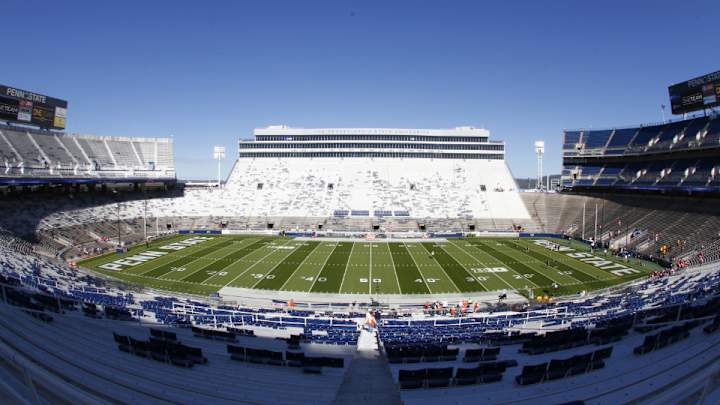Email: NCAA nearly gave Penn State death penalty over Sandusky

An email filed in the court case between Pennsylvania officials and the NCAA over the Jerry Sandusky scandal shows that the NCAA nearly gave Penn State's football program the "death penalty," according to the Associated Press.
In the email, sent from NCAA attorney Donald Remy to attorney Gene Marsh, who was representing Penn State, in September 2012, Remy writes that a majority on the NCAA executive committee favored leveling the death penalty on Penn State on the day of July 17, 2012. The death penalty involves an athletic program being shut down for at least one year.
On July 23, Penn State accepted the NCAA's consent decree, thus receiving sanctions that included the vacating of all wins from 1998 to 2011, scholarship restrictions, a postseason ban and a $60 million fine, which was to go towards programs to help prevent child abuse. According to Remy's email, Penn State's cooperation prevented the enactment of the death penalty.
"In a subsequent call we informed you that it was Penn State's cooperation and transparency that encouraged members of the executive committee to forgo the pursuit of a stop in play," Remy wrote.
The consent decree included language that the death penalty was not considered appropriate because Penn State had no prior major violations, accepted the penalties, commissioned the [internal Louis] Freeh investigation and "provided unprecedented access and openness, in some instances, even agreed to waive attorney-client privilege, and already has implemented many corrective actions."
• LAYDEN: Where is Penn State three years after Sandusky scandal?
The lawsuit in which the email was filed was brought by Pennsylvania state senator Jake Corman and state treasurer Rob McCord in January 2013, with the pair seeking to ensure that the entirety of the $60 million fine was spent on programs within the state of Pennsylvania.
The NCAA has since agreed to comply with the request but a lower court ruled in April that the consent decree itself was subject to review, and the legality of the decree is the subject of an upcoming January trial. The NCAA tried to have the trial stopped earlier this month but the Pennsylvania Supreme Court ruled against the organization.
Emails released previously showed that senior NCAA officials weren't sure they had the authority to levy sanctions on Penn State since the Sandusky scandal was ostensibly a criminal matter. Last Saturday, the lower court ruled that the NCAA had to provide 477 more emails going back to July 2012.
Sandusky, the longtime Penn State assistant football coach was convicted on 45 counts of sex abuse in June 2012 and is currently serving 30 to 60 years in prison. Earlier this fall, the NCAA restored Penn State's postseason eligibility and lifted its scholarship restrictions because of how the program and university have responded since the punishment was handed down.
- Ben Estes
